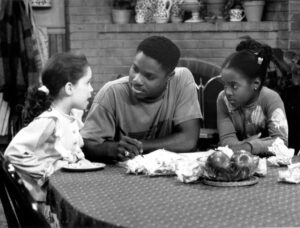Ajna In An Open Book On ‘Lifelines’ [Interview]

Nothing ever starts as intended or lasts as long as it should. Endings are often abrupt and agonizing, and uncomfortable with saying goodbye out of fear of a kind gesture becoming a reality. It’s hopeless trying to control life when it’s demented. It thrills off cosplaying as The Joker, smiling when its surrounded by destruction. Beginnings, on the other end, are slithery. It’s Toni from Girlfriends, someone who persistently invades your sanctuary—quietly turning the page of your story to introduce you to a new cast of characters, settings, triumphs, and failures. All while you’re scrolling to the bottom of the page.
Ajna seeks to close a chapter that was a year in the making. In a metaphorical sense, Lifelines is an ode to the people and music accompanying him each time he yawed off course. In a literal sense, Lifelines is lines about his life. Speaking to them from a different perspective, drawing the kind of honesty out of himself that feels threatening, especially when the driving force that pulls on it pains him when he reminisces.
“Dealing with the effects that Lenah’s death had on me is the album’s biggest driving force,” the California native recalls about his lover. She was an inspiration to him, the spark that accelerated his growth as a man. He was able to be comfortable in his own skin with Lenah’s help. He fostered and grew a sense of confidence in himself with Lenah’s help. Able to love talking about the prospects of tomorrow instead of the eternal past. “Like it was a lot of nights by myself trying to think and work through different shit and just being like, okay, how do I feel about this? Because it wasn’t something that happened, and I knew exactly how I felt.”
As time went on, the angrier he got. The angrier he became, the more he leaned on the music to char the seed of distress that expanded in his chest. Losing a loved one could haul anyone into the white room. Over time, You become disillusioned, depersonalized, and engulfed in physiological and psychological torture. Everything feels like linen, smooth with no lingering texture to heighten the sensations.
His first words on the intro track ‘I-10’ confirm where he is. “I had some time to sit with my thoughts and tears/my love, and fears/I have a lot of old pain that I harbor.” With that one line, behind a production made for gaping eyes to explore the buildings alongside the highway, he sounds ready to go back to his source of inspiration. The bass thumping underneath the pelting of the keys makes it gentle, all while he goes step by step on the thoughts that trouble him. “I really thought I was trying my hardest/I didn’t understand the challenges of being an artist,” he raps a couple of bars.
Music was right by his side, like it always has been. From afar as a child to the last days of a high school senior when he finally had an excuse to play with it. “We had to do a satirical project on the United States, and I was like fuck it, I’ll make a song.” From there on, it became cathartic, a hobby to relieve any stress that came with being young and anxious. Along the way, it started taking up more of his time. It wasn’t fun anymore. It became work. Therapy fell behind to every artist’s most significant obstacle, the admiration of others.
“When I first started making music, it was a form of like therapy to me,” he says. “As I started to take it more seriously, I fell away from that a bit. I was trying to please everyone else, and then I think over time, it kind of I got back to what drove me in the first place.”
The beginnings of the life he has now started at the end of one chapter. Two years after Lenah’s untimely death, at this moment, Ajna is comfortable enough to express how important she was to him and the difficulty of moving on. For Ajna, Music has returned to being therapeutic. Only one point of view is shared in a mic, with judgments prohibited until its release.
‘Fall So Fast”, the lead single and one of the standout tracks from the album, follows the brazen confidence displayed in ‘Dangerous Bets‘ (a fucking banger), but the bottom falls out. The brazen feeling of invincibility crumpled to its knees like Durk when the feds came. The horns are intense and precise, refusing to let this send-off fail due to the moment’s emotion. In the meantime, keys pitch scales down every two bars throughout the record as if everything is crashing down on him repeatedly. He’s alone, at his lowest, faster than he ever imagined. The album’s tone begins right here when he’s at the point of acceptance. There are good days, and there are the worst days. There are days when he accepts his reality and days when he can’t believe this is real.
Lifelines is an album dedicated to himself first and foremost. With the death of his lover altering the landscape he exists in, the instrumentals he would create in his bedroom reminded him of his purpose, allowing him to express the sadness of losing someone special while validating his feelings. “I write about my life/I’m not trying to make quotes.” It catapulted him from a ditch, and with it, his value; even if it was only halfway up, he could finally start to see the light.
We all have lifelines, something or someone we lean on to get us through the worst. The funny thing about lifelines is that they are often the last resort in a dire situation, yet they’re supposed to be within arms reach. Somewhere accessible but one that gets you the help that you need safely. There are the things that give you the strength to last a little longer for the day, the week, and the months ahead. Dependency on a source that has a limited span a dangerous, especially where if you show too many good days, that strength becomes a crutch from the community you seek.
Who Wants To Millionaire presented lifelines as a festive activity despite the tension. Everyone is having a good time, even those who have financial freedom on the brink, based on the whim of the brilliance of a friend, a random audience member, and the old school methodology 50/50. From Ajna’s prospective, that reception is harmless to the truths he’s had to accept. He didn’t have three options, he only had one. And from that one, he only had one way to go about; make it for him.
The culmination of events that led him to where he always wanted to be is centered around tragedy. But life value comes in its moments decored in color. It’s why the album is titled Lifelines; it’s an autobiography. It’s a memorial. A time capsule meant to resurface in the distant future to keep these moments from losing their color. Edited intentionally to highlight this, the music video for the album closer is a time capsule in its own right. Time has flown by since then. His hair is shorter, his clothes baggier, and his name is more prominent, but the desert and the shoreline are his comforts.
Once in view, the ocean and desert look never-ending, and as he stares towards them, clips of them together hover to his sides as he recites his lines. It’s to memorialize Lenah’s impact on his life as a lover but, most importantly, as a person loved by many others outside of himself.
The cycle of beginning and end share a common setting. One where her presence will always live on in color. Memories are captured by technology with the intended purpose of being immortal. The physiological response becomes physiological when those images become black and white once the time is up. Ajna wanted to mark this as the turning point in his life to be a successful artist, and, for the first time, deciding when and how a chapter ends.





